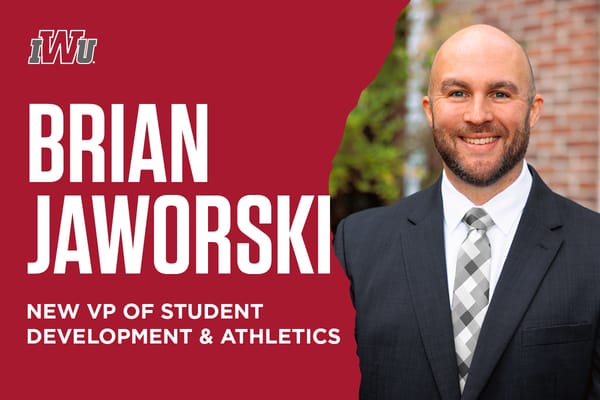4 Reasons Every Nurse Should Pursue an MSN
For years, the Bachelor of Science (BSN) has been considered the standard degree for nursing professionals, training them primarily for work at the hospital bedside.
By: Alesha Logan, DNP, RN, FNP-BC & Jake Hreha
For years, the Bachelor of Science (BSN) has been considered the standard degree for nursing professionals, training them primarily for work at the hospital bedside. However, advancements in technology and the healthcare landscape have created large shifts in career direction and motivation for many to pursue education beyond their bachelor's degree. The pandemic has motivated a large number of nurses to take a critical look at their profession, career direction, job satisfaction, and life’s purpose.
There are very few single professions that provide the diversity of practice and opportunity as nursing. Nurses may work as researchers, educators, bedside clinicians, aestheticians, health coaches, primary care professionals, and anesthetists. Much of this is made possible by the ability to achieve advanced education and training beyond the BSN.
An advanced nursing degree is a great step for many in the nursing practice. Whether you want to pursue advanced nursing family nurse practitioner roles, become a clinical nurse leader, or step into an advanced practice registered nurse role, the master of science in nursing is for you. Finding an advanced nursing program that allows you to reach your career goals is an important part of your journey to becoming a nursing master.
Obtaining the Master of Science in Nursing (MSN) degree available at Indiana Wesleyan is a key strategy to accessing many of these opportunities for several reasons, including:
#1. Each One Teach One: Working as a Nurse Educator
According to a report from the American Association of Colleges of Nursing (AACN) titled “2019-2020 Enrollment and Graduations in Baccalaureate and Graduate Programs in Nursing,” U.S. nursing schools turned away over 80,000 qualified applicants from both BSN and MSN programs in 2019 due to inadequate staffing. This includes insufficient clinical sites, preceptors, and classroom space. Furthermore, two-thirds of respondents cited a shortage of faculty as a reason for not accepting more qualified applicants. The master's degree program prepares nurses to enter nursing education as faculty and clinical preceptors. Though many nursing programs encourage and may require a terminal (doctoral) degree, training as a master’s-level nurse allows for a number of entry-level teaching positions that provide valuable experience. Your work as nurse educator helps bring up the next generation of registered nurses in the health care field.
#2. BYOB (Be Your Own Boss): Nurse Entrepreneurship
Anyone with good business acumen should ask this question: “What is the return on my investment?” As a small business owner and private practice owner, one of the greatest incentives for achieving the MSN is the ability to practice autonomously without limit to earning potential. Nurses can serve in a number of capacities as clinic owners, consultants, home care nurses, CNA instructors, IV clinic staffers, functional/integrative health providers, educators, and motivational speakers. The MSN degree provides valuable skills that position a nurse to become a successful entrepreneur, which can help with retention of many burned-out, frustrated, or bored nurses. The ability to revitalize and invigorate the nursing profession is one tremendous benefit of the MSN degree. You can decide whether you want to work bedside, in health promotion, nursing informatics or another area with a degree from an MSN program.
#3. Fact Checker: Nurse Researcher and Scientist
As an educator with experience in both undergraduate and graduate nursing programs, there are sharp distinctions between the research skills and preparation required for BSN and MSN nurses. BSN nurses often work at the bedside, and may not be actively engaged in research and critical appraisal of the literature. In the hospital setting, these tasks may be delegated to MSN-prepared specialties like nurse educators or clinical nurse specialists. As such, the early part of the MSN program is spent teaching and training nurses how to recognize quality evidence and apply this to their own clinical practice. They are able to better contribute to the field of nursing science and development of the profession.
#4. Show Me the Money!!: Increased Earning Potential
And, of course, if the above were not enough motivation, increased earning potential most certainly is. According to Nurse Journal, master’s-prepared nurses earn thousands more per year than those with bachelor’s degrees. The salary range for BSN nurses is $53,000 to $116,000. For MSN-prepared nurses, the lowest 10% earn close to $84,000, while the upper 10% make more than $190,000.
The steep difference in salary is largely due to the ability to specialize, with many specialties being in high demand. Indiana Wesleyan offers 5 specialty tracks for Master’s Nursing, including Administration, Business, Primary Care Nurse Practitioner, Psychiatric Nurse Practitioner, and Nurse Education.
Could the role of clinical nurse specialist or advanced practice nurse be the next step in your career? Interested in learning about how an MSN could help you reestablish yourself as a nursing professional? Start your application today.
(A graduate with their degree from the master of science in nursing program.)
Alesha Logan, DNP, RN, FNP-BC
Assistant Professor, IWU School of Nursing
Alesha Logan, DNP, RN, FNP-BC, is a family nurse practitioner and assistant professor in the school of nursing at Indiana Wesleyan University. She also works as a consultant for nursing professionals looking to reinvent themselves as nurse entrepreneurs.
Jake Hreha
SEO Copywriter, IWU
Jake Hreha is a graduate of Ball State University, where he majored in advertising with a concentration in media presentation and design. He is passionate about design, and in his free time he enjoys cycling, traveling, and reading.




